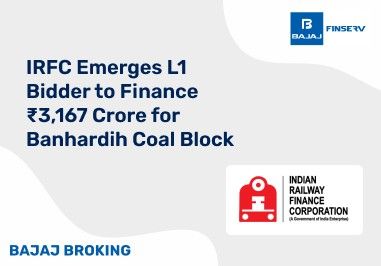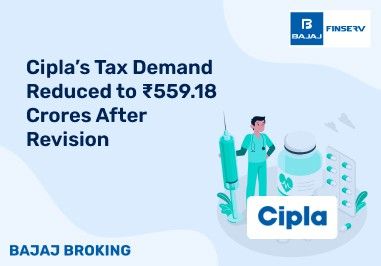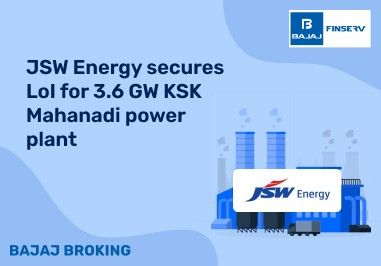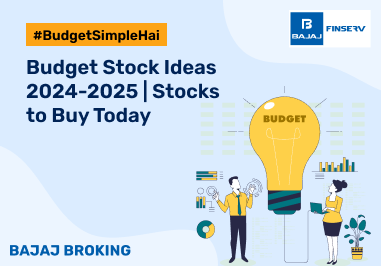BAJAJ BROKING
Stallion India Fluorochemicals IPO is Open!
Open a Free Demat Account
Trade Now, Pay Later with up to 4x
Track Market Movers Instantly
Share Market Today | Gift Nifty Hints At Flat To Positive Opening Amid Global Cues
Synopsis:
Today’s share market’s key updates include how Vedanta invests $2 billion in Saudi Arabia for copper facilities, Dabur faces ₹320.6 crore tax demand, NTPC forms a green JV, Kotak acquires ₹4,100 crore loans, and FIIs buy ₹1,157.70 crore.
Latest Market News
1. Vedanta | The company is set to invest $2 billion in Saudi Arabia to establish copper-processing facilities, marking a major boost for the kingdom’s ambitions to become a global hub for mining and metals.
2. Dabur | Indian FMCG major said it has received an order from the Additional Commissioner, CGST Commissionerate, Chandigarh, confirming a demand of ₹320.6 crore along with applicable interest
3. NTPC | NTPC Green Energy under the Ministry of Power has partnered with Maharashtra State Power Generation Company (MAHAGENCO) to form a 50:50 joint venture company. The joint venture, named MAHAGENCO NTPC Green Energy Private Ltd (MNGEPL), will focus on developing, operating, and maintaining renewable energy parks across Maharashtra
4. Kotak Mahindra Bank | The Competition Commission of India (CCI) on Tuesday approved Kotak Mahindra Bank's proposed acquisition of Standard Chartered Bank India's personal loans portfolio for ₹4,100 crore
5. Cash segment- FIIs net buy ₹1,157.70 crore while DIIs net sell ₹1,910.86 crore in equities yesterday(provisional)
VEDANTA LIMITED
Trade435.254.64 (1.07 %)
In-Depth Market Insights: Global Outlook, Derivatives & More
US Share Market News
Performance Overview:
The S&P 500 and Dow Jones closed at a record highs on Tuesday, as investors assessed President-elect Donald Trump's threat to impose higher import tariffs on China, Canada and Mexico.
Sector-Specific Movements:
The Dow Jones Industrial Average rose 0.3% to a closing record of 44,860.31. The S&P 500 index gained 0.6% to close at record of 6,021.80, while the NASDAQ Composite climbed 0.6%.
Economic Indicators:
Fed members continued to support rate cuts should economic data come in as expected, but many Fed members expressed that uncertainty over neutral rate warrants a gradual approach to monetary policy easing, according to the minutes of the Federal Reserve’s Nov. 6-7 meeting, released Tuesday.
Trading volumes are expected to be muted for the remainder of the week, with the Thanksgiving holiday on Thursday in the US.
The focus on Wednesday will be on PCE price index data for October. The reading is the Fed’s preferred inflation gauge and is likely to factor into the central bank’s plans to cut interest rates further.
Other Asset Classes
Treasury Yields:
The 10-year U.S. Treasury yield advanced on Tuesday as investors analyzed the latest Federal Reserve meeting minutes and key economic data due this week. The yield on the 10-year Treasury rose more than 3 basis points to 4.296%.
Currency:
The U.S. dollar index, which measures the greenback against six major currencies, was 0.25% higher at 106.89 on Tuesday.
Commodities:
Spot gold was steady at $2,626.83 per ounce. It recouped earlier losses and closed on a flat note.
Oil prices slid on Tuesday, giving back early gains in choppy trade after Israel agreed to a ceasefire deal with Lebanon, reducing oil’s risk premium. Brent crude futures fell 0.3%, to $72.79 a barrel.
Asian Markets
General Trends:
Asia-Pacific markets opened mixed on Wednesday morning, following gains on Wall Street.
Traders in Asia will assess monthly consumer price index figures out of Australia, set to be released later in the day.
Specific Index Performance:
Japan’s Nikkei 225 opened to trade down 0.35%, while the broad-based Topix dropped 0.5%.
The South Korean blue-chip Kospi index was down 0.4% at open, while small-cap Kosdaq dropped 0.65%.
India Market Outlook
GIFT Nifty Projection:
Gift Nifty suggests a flat to positive opening for the indian market amid mixed global cues. Nifty spot in todays session to extend previous session consolidation and trade in the range of 24050-24400.
Market in Previous Session:
Benchmark indices Nifty and Sensex on Tuesday snapped their two-day winning streak, dragged down by weakness in auto, pharma, and energy stocks amid a lack of fresh catalysts.
Although the session began on a positive note, both indices quickly reversed gains, reflecting a muted market sentiment.
At close, the Sensex was down 105.79 points or 0.13 % at 80,004.06, and the Nifty was down 27.40 points or 0.11% at 24,194.50.
The Nifty Auto, Energy, and Pharma indices experienced notable losses in the afternoon session. On the other hand, the Nifty IT and FMCG indices gained 1 percent each.
The broader market, represented by the midcap and smallcap indices, outperformed the benchmarks, recording gains of 0.1% and 0.6%, respectively.
Nifty Short-Term Outlook:
The Index has formed a small bear candle which mostly remained enclosed inside the previous session's high-low range signalling consolidation after a strong up move of more than 1050 points in just two sessions.
We believe the current consolidation should be used as a buying opportunity. The index has immediate support at 24,000-23,700 being the lower band of Monday’s gap-up area and recent trendline breakout area. Immediate bias remains positive above the same.
We expect the index to extend pullback and head higher towards 24400-24500 levels in the coming sessions, being the confluence of the 50-day EMA and the 38.2% retracement of the entire decline (26277-23263).
Intraday Levels:
Nifty: Intraday resistance is at 24,280 followed by 24,390 levels. Conversely, downside support is located at 24,110, followed by 24,000.
Bank Nifty: Intraday resistance is positioned at 52,430, followed by 52,000, while downside support is found at 51,670, followed by 51,520.
Derivative Market Analysis
Nifty:
The highest call OI remains intact at the 25,000 level, while call writing has been observed at the 24,400 and 24,500 zones, which will serve as immediate resistance.
On the other hand, major put OI has been noted at the 23,500 level, while immediate put OI has been noted at the 24,000 level, which will act as support.
According to option chain analysis, Nifty's immediate range is between the 24,000 and 24,500 levels. A breakout on either side of this range will likely trigger a further directional move.
The Nifty put-call ratio has declined by 0.07 and is now positioned at the 1.04 level.
Bank Nifty:
The highest call OI has been noted at the 54,000 level, while immediate call OI addition has been observed in the 52,500–52,600 zone, which will act as resistance for this monthly expiry.
Major put OI has been noted at the 51,000 level, while immediate put OI has been observed at the 52,000 level, which will act as crucial support.
For this monthly expiry, it is evident that put writers have shifted their positions to higher levels, and call unwinding has been noted, suggesting positive data points.
The max pain level for the monthly expiry is at the 52,000 level.
Stay on top of the latest market news with Bajaj Broking’s insights. Our point-to-point expert analysis digs deep into the surface, empowering you with a unique perspective on domestic and global stock market events. Get all the current share market news, including US share market updates in one place and make wise investment decisions.
- Related Articles
- Top Articles

Gold Rate Today | 15 January 2025 | Gold Price in India
15 Jan, 2025 | 40 Min. read

Delhi Court Discharges JSW Steel in Corruption Case; HC Clears Monnet Takeover
15 Jan, 2025 | 2 Min. read

IRFC Emerges L1 Bidder to Finance ₹3,167 Crore for Banhardih Coal Block
15 Jan, 2025 | 2 Min. read

Cipla’s Tax Demand Reduced to ₹559.18 Crores After Revision
15 Jan, 2025 | 2 Min. read

Govt Plans 5-6% Hike in Highway Budget for FY26 After FY25 Slump
15 Jan, 2025 | 2 Min. read

Rikhav Securities IPO- Key Objective & Deep Analysis
15 Jan, 2025 | 5 Min. read

Landmark Immigration IPO- Key Objective & Deep Analysis
15 Jan, 2025 | 5 Min. read

HCL Tech expands partnership with Microsoft to transform contact centres
14 Jan, 2025 | 2 Min. read

BEL secures new orders worth Rs 561 crore, boosting FY25 order book
14 Jan, 2025 | 2 Min. read

ITI Ltd secures Rs 64 crore contracts for Wi-Fi and CCTV systems
14 Jan, 2025 | 2 Min. read

JSW Energy secures LoI for 3.6 GW KSK Mahanadi power plant
14 Jan, 2025 | 2 Min. read

Biocon Biologics’ Johor Bahru Facility Receives FDA VAI Classification
13 Jan, 2025 | 2 Min. read

RBI Launches ULI: Transforming Loan Access
August 27, 2024 | 4 Min. read

Textile Sector in India
September 20, 2024 | 5 Min. read

List of IPOs with DRHPs Filed
November 30, 2023 | 3 Min. read

Aditya Birla Group
September 28, 2023 | 10 Min. read

Bajaj Housing Finance Ltd IPO: Things Smart Investors Need to Know
September 05, 2024 | 4 Min. read

Budget Stock Ideas 2024-2025 | Stocks to Buy Today
July 24, 2024 | 4 Min. read

IPO Eligibility Criteria : Full Details
March 15, 2024 | 6 Min. read

What Is the Lock-In Period in IPOs?
October 18, 2023 | 6 Min. read

Godfrey Phillips Announces 2:1 Bonus Shares
September 16, 2024 | 7 Min. read

Jindal Group- A Comprehensive Analysis
September 27, 2024 | 7 Min. read
Read More Blogs
Our Secure Trading Platforms
Level up your stock market experience: Download the Bajaj Broking App for effortless investing and trading



